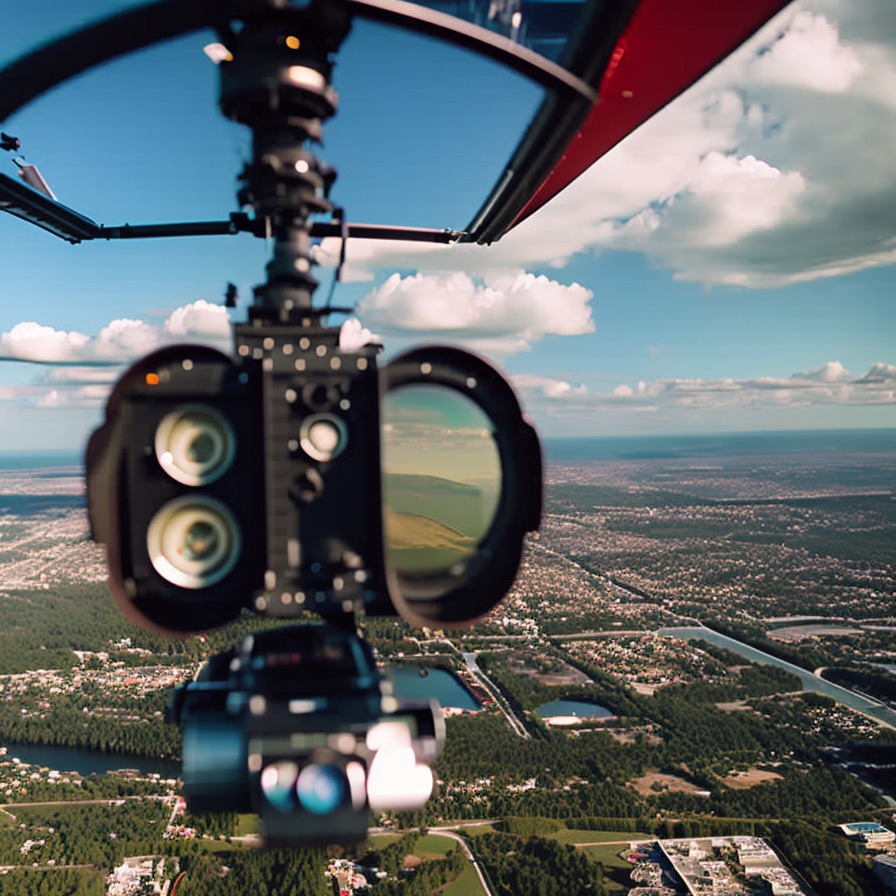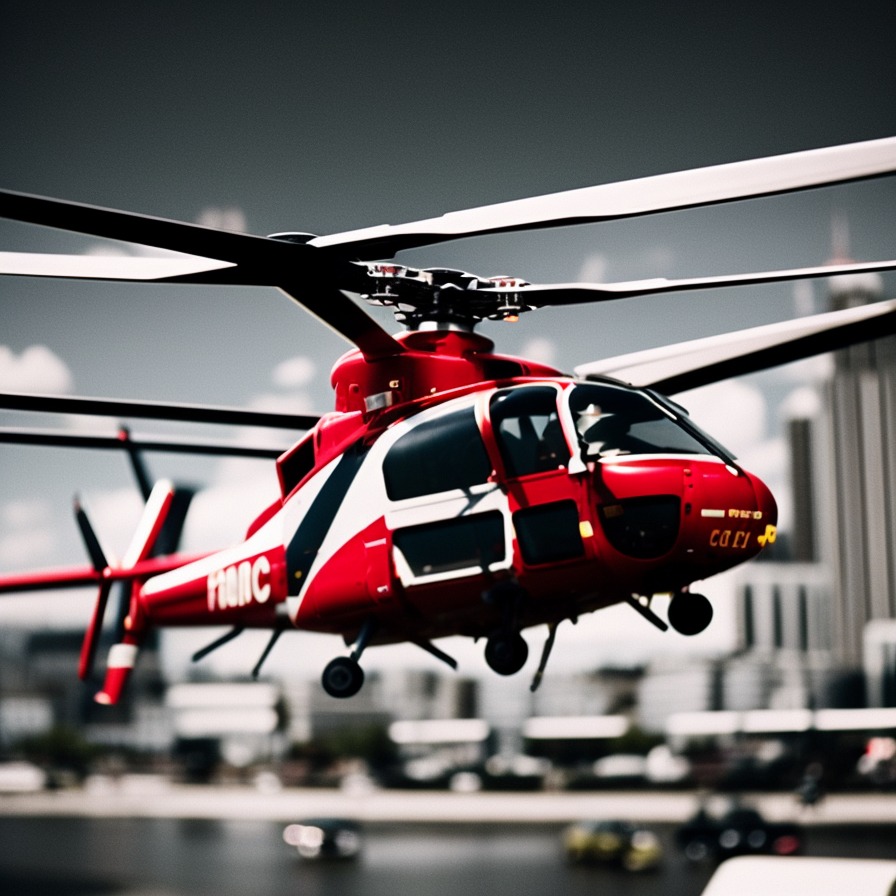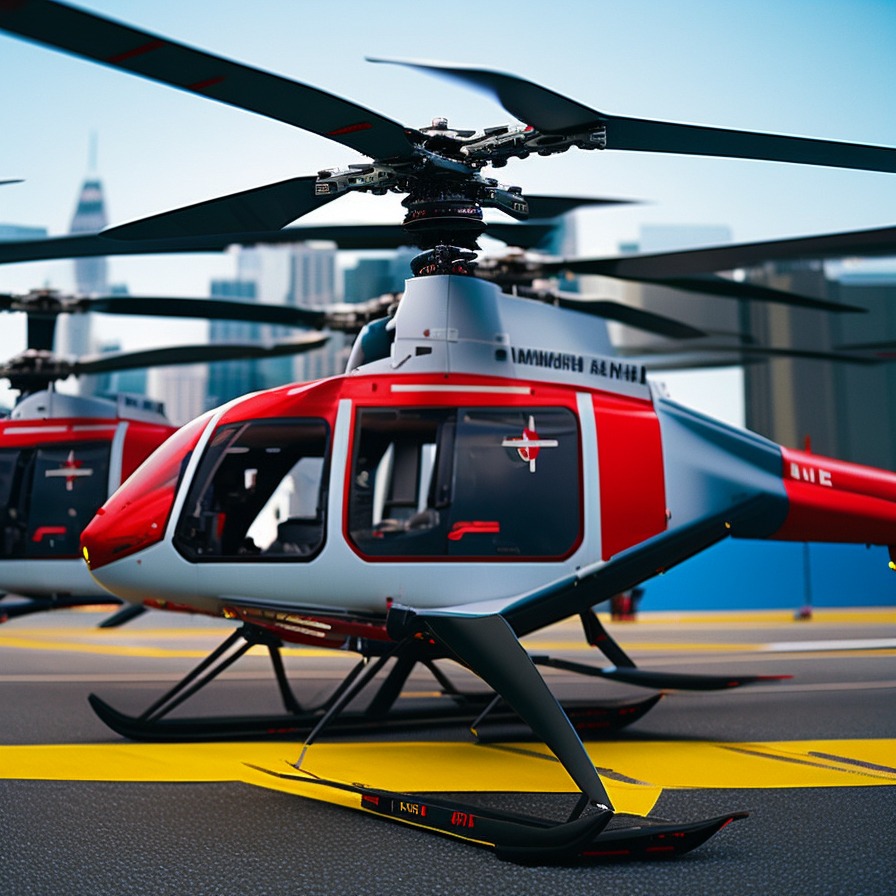Artificial intelligence (AI) in aviation.
Artificial intelligence (AI) along with technological progress introduces a lot benefits for various fields, including aviation. One of the most important AI application in aviation is to support helicopter pilots. IN nowadays, when the demands and challenges of flying are increasing, artificial intelligence plays an extremely important role in providing more level of safety, which is crucial for all passengers and members crew.
Artificial intelligence can help with many aspects of helicopter flights, such as automatic navigation, better recognition of emergency situations and air collision prevention. Thanks to modern AI systems, pilots helicopters can focus on more complex tasks such as planning a route and monitoring on-board systems instead of spending time on manual work.
One of the most interesting examples of the use of artificial intelligence in aviation is the AVASIS (Automated Video and Audio Surveillance) system Information System) whose purpose is to help helicopter pilots quickly detecting threats. The AVASIS system works continuously and analyzes over time real-time audio and video data from the helicopter’s headphones, microphones and cameras. If he sees or hears anything suspicious, he’ll notify the pilot immediately, thanks so that he can take quick and effective action.
Another example is a helicopter automatic landing system that uses artificial intelligence and is used in emergency situations, such as loss of visibility or engine failure. In such situations, the system ensures a safe landing of the helicopter on the ground, minimizing the risk of injury or death of the crew.
Application? Artificial intelligence plays an increasingly important role in supporting the activities of helicopter pilots and improving the level of safety in aviation. Thanks to this, pilots can make important decisions more effectively and avoid potentially dangerous situations. Of course, this is only the beginning, because AI, along with technological progress, will introduce even more advanced and innovative aviation solutions that will support crews even more effectively during the flight.
Can a helicopter pilot be replaced by artificial intelligence?
This question should be on the lips of anyone interested in the future of aviation. Artificial intelligence and robotics are developing at a dizzying pace, and every year we entrust more and more work to machines.
However, can you trust the machines and give them the control of planes and helicopters?
The first attempts to introduce artificial intelligence to aviation are already being made. In 2018, the Chinese aerospace manufacturer AVIC presented the first prototype of an unmanned helicopter capable of carrying out transport and reconnaissance missions. Already in 2020, the same company showed another model, this time fully autonomous, capable of landing and taking off without the participation of the operator.
However, this is not the only example. In 2020, Airbus unveiled a cloud-based platform to enable remote control of airplanes and helicopters. Boeing, on the other hand, is working on artificial intelligence to improve flight safety and reduce the risk of pilot errors.
Does this mean that soon all pilots will be replaced by machines?
For now, such prospects are unrealistic. Although artificial intelligence can be very helpful in piloting, it still cannot fully replace a human. Pilots are not only tasked with controlling the machine, but also making decisions in crisis situations, solving technical problems and coordinating activities in difficult conditions. All this requires the right skills from humans, which so far cannot be provided by artificial intelligence. It is also worth noting that the pilots have not only extensive experience, but also knowledge in the field of aerodynamics, meteorology and other fields of science. Such knowledge is crucial for safe flight, and artificial intelligence is not yet able to provide it in the same form as humans. Still, the introduction of AI to aviation is already bringing benefits. Thanks to this, we can diagnose machine failures faster and more effectively, predict the weather and reduce operating costs. The introduction of modern solutions is therefore inevitable, but it still does not mean the complete replacement of people with machines.
In summary, AI has great potential in aviation, but it is not yet able to replace humans in their tasks. Pilots are still irreplaceable, and the development of technology should primarily serve to improve the safety and efficiency of flights.
Can AI replace humans in other fields directly or indirectly related to aviation? Let’s take this text as an example, 95% written by artificial intelligence. Of course it’s well written and contains interesting facts, but is it really accurate? I think that for a long time, humans will be needed to control what artificial intelligence will do for them.
Images generated by AI



